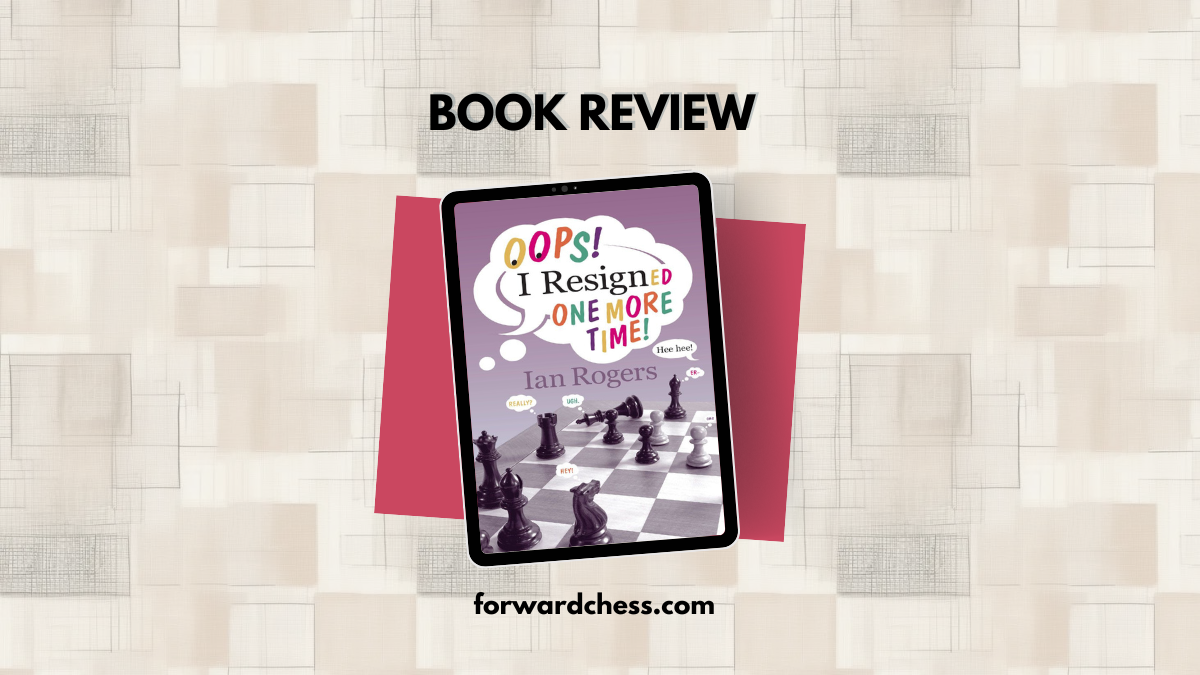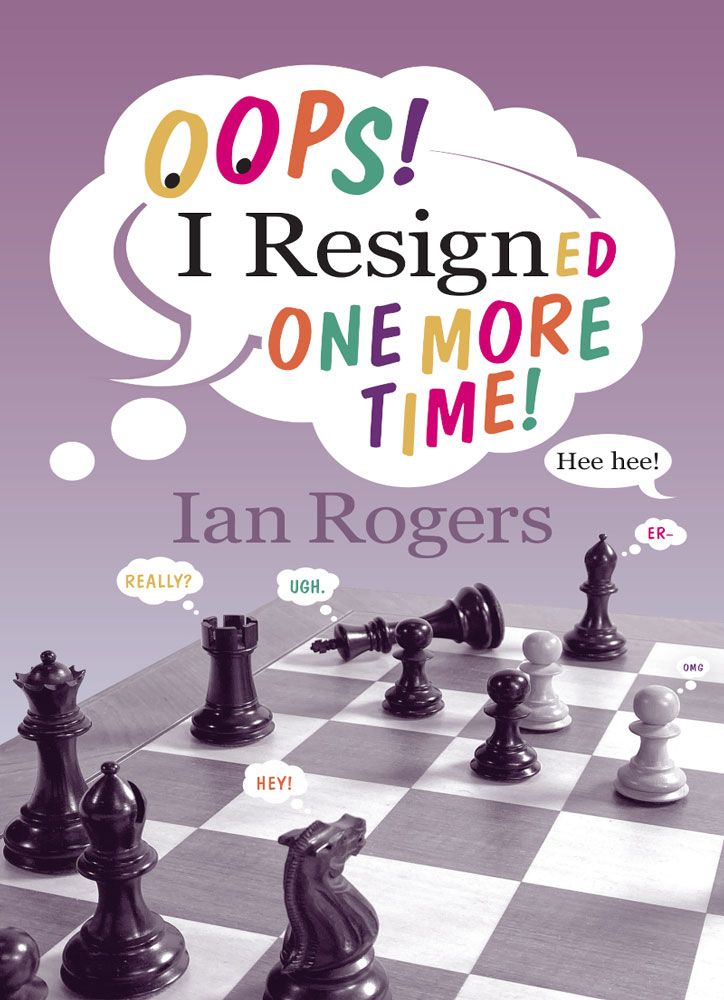Review: Oops! I Resigned One More Time
“No one ever won a game by resigning.” – Savielly Tartakower.
Hollywood loves a sequel. If a movie does well at the box office, you can be sure that a sequel is on the cards. Of course, sometimes Hollywood goes too far. The inspiration well runs dry, the sequels degenerate into a pale imitation of the original and the revenue slumps. It’s then time to pull the plug and move on to something new and start the process again.
Well, if Hollywood can have sequels, why not chess books? GM Ian Rogers wrote a very entertaining book in 2022 called Oops! I Resigned Again. The book was well-received, so why not a sequel? Now we have Oops! I Resigned One More Time.
Rogers writes:
“When the first book in this series, Oops! I Resigned Again!, was released, I expected most readers to look on all the silly resignations with scorn, thinking, “Well, I would never do anything like that!”
Surprisingly, to me at least, instead of lashings of schadenfreude came empathy. Putting themselves in the victims’ shoes, many reacted as if “There but for the grace of God go I” and were simply relieved that similar accidents had not befallen them in their chess career. (“I could easily imagine resigning a few of these games myself,” commented English Grandmaster Matthew Sadler.)”
Reader who enjoyed the original book will enjoy the new book. The format remains the same, and so readers can indulge in another round of schadenfreude at the expense of the poor victims.
I discussed the style and layout of the original book in my review, and that review equally applies to the new book. For this book, the material is split over 20 themed chapters, and each example provides some background to the game. Rather than repeating the original review almost verbatim, let’s look at two examples from the book, with annotations from the book.
Rogers introduces the first example as follows.
“In the final round 59-year-old Upton, in what was to be his final tournament game, had been slowly outplayed and after his opponent’s stylish final move, 36…Rxd4, he could see it was pointless to play on and resigned. However, Black’s last move gives White an unexpected opportunity to turn the tables.”
The introduction to the second example is as follows.
“Two years after being dethroned as FIDE World Champion by Vladimir Kramnik, Veselin Topalov was back in top form at the 2008 Dresden Chess Olympiad but a penultimate round loss to Alexey Shirov ruined Topalov’s dreams of individual gold. With Bulgaria having no chance for a team medal, he sat out the final round and at least guaranteed himself an individual bronze.
Even without Topalov, sixth seed Bulgaria comfortably accounted for Kazakhstan 3-1 in the final round and tied for 12th place, making a disappointing Olympiad look slightly more respectable. The final score was padded out thanks to Topalov’s replacement on board one, Ivan Cheparinov, prevailing after a tough game against Kazakhstan’s Murtas Kazhgaleyev.”
In conclusion, the opening quote should have been at the forefront of the minds of all the losers in this book. Still, if that were the case, they would have avoided seeing their misery displayed in this book. Hence, we can be grateful for their tragic blunders and enjoy another entertaining book of misfortunes at the expense of the losers. Hopefully, we can also look forward to the next sequel.
- 1000 Published books on Forward Chess - November 15, 2024
- Book Review: A Guide To Chess Improvement - September 9, 2024
- Review: Chess Coach by Vladimir Barsky - August 26, 2024

